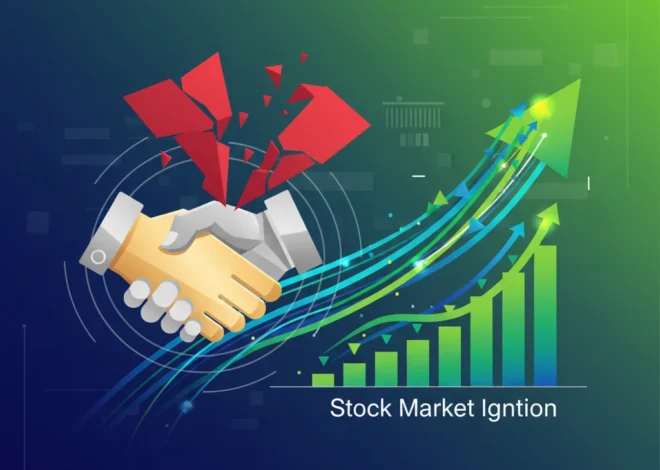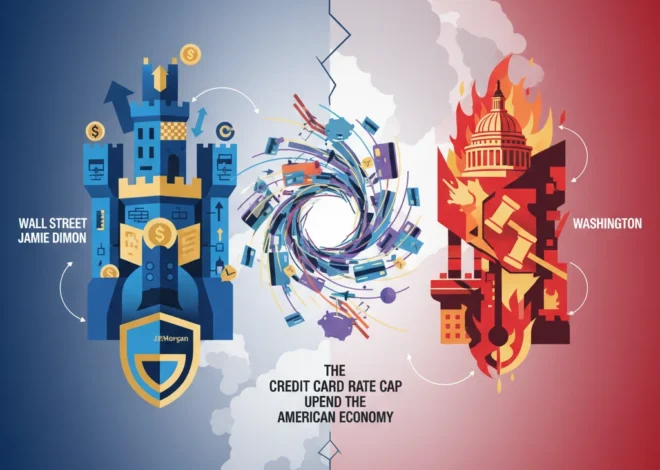
The New Prescription for Economic Health: Why Your Doctor Might Soon Be Your Financial Advisor
In the quiet, sterile environment of a doctor’s office, the conversation typically revolves around symptoms, diagnoses, and treatment plans. We discuss blood pressure, not bank balances; cholesterol levels, not credit scores. Yet, a groundbreaking trial in London is challenging this traditional separation, built on a simple but profound premise: our financial health and our physical health are inextricably linked. What if the most effective prescription a doctor could write wasn’t for a pill, but for a plan to tackle debilitating debt?
This isn’t a hypothetical question. As reported by the BBC, General Practitioners (GPs) in London are pioneering a scheme where they refer patients struggling with stress and anxiety directly to in-house financial support workers. The results are not just encouraging; they are a clear signal of a paradigm shift in our understanding of wellness. This initiative is more than just a local health program; it’s a microcosm of a powerful convergence between healthcare, finance, and technology. For investors, business leaders, and finance professionals, it unveils a new frontier for innovation, social impact, and sustainable economic growth.
The Vicious Cycle: How Financial Stress Manifests as Physical Illness
The notion that money worries can make you sick is not new; it’s an intuitive truth many have experienced firsthand. However, the science behind it reveals a devastating biological and psychological cycle. Chronic financial stress floods the body with cortisol, the primary stress hormone. Sustained high levels can lead to a cascade of negative health outcomes, including high blood pressure, weakened immune response, and an increased risk of heart disease and diabetes. A study published in the American Psychological Association’s journal Health Psychology found a direct correlation between financial stress and physical pain, highlighting a tangible link between our wallets and our well-being.
This creates a self-perpetuating downward spiral. Financial anxiety leads to poor sleep, unhealthy eating habits, and delayed medical care, which in turn worsens health. Worsening health can lead to an inability to work, mounting medical bills, and further financial distress. This vicious cycle doesn’t just harm individuals; it places an immense burden on public health systems and drags down the wider economy.
To better understand this dynamic, consider the interconnected stages:
| Trigger | Psychological & Behavioral Impact | Physical Health Consequence | Economic & Financial Fallout |
|---|---|---|---|
| Job Loss, Debt, Inflationary Pressure | Anxiety, Depression, Insomnia, Poor Diet Choices | Weakened Immunity, Hypertension, Digestive Issues | Reduced Productivity, Absenteeism, Increased Healthcare Costs |
| Mounting Medical Bills | Feelings of Hopelessness, Avoidance of Further Care | Exacerbation of Chronic Conditions, New Health Problems | Inability to Work, Default on Loans, Further Debt |
This cycle illustrates that treating only the physical symptoms without addressing the root financial cause is like trying to mop the floor while the tap is still running. The London GP trial attempts to turn off the tap.
A New Model for Care: Prescribing Financial Health
The London initiative, a form of “social prescribing,” is elegant in its simplicity. When a GP identifies that a patient’s health issues like anxiety or depression are rooted in or exacerbated by financial problems, they can offer an immediate, on-site referral to a financial health practitioner. This co-location is critical. It removes the stigma often associated with seeking financial help and eliminates the logistical barriers that might prevent a vulnerable person from following through on a referral.
Patients receive practical support, from debt management and budgeting assistance to help with accessing welfare benefits. As one patient told the BBC, getting this help directly through her trusted GP was a “lifeline” that not only improved her financial situation but her overall health. This model transforms the doctor’s surgery from a place that treats sickness into a hub for holistic wellness, acknowledging that social and economic factors—the so-called “social determinants of health”—are as crucial as clinical ones. According to the World Health Organization, these determinants can be more important than healthcare or lifestyle choices in influencing health (source).
The Macroeconomic Imperative: Financial Wellness as an Economic Engine
The implications of this integrated approach extend far beyond individual patient outcomes. A financially stressed workforce is an unproductive one. A 2023 report from PwC revealed that financially stressed employees are nearly twice as likely to be looking for a new job and miss more days of work (source). This “presenteeism” (working while sick or distracted) and absenteeism costs businesses billions annually in lost productivity.
When scaled, initiatives that improve the financial resilience of the population can have a profound impact on the national economy. A financially healthier populace means:
- Reduced Strain on Public Services: Fewer people reliant on emergency healthcare and state benefits.
- Increased Productivity: A focused, engaged, and healthier workforce drives business growth and innovation.
- Greater Economic Stability: Financially stable households are more likely to save, invest, and participate in the economy, creating a virtuous cycle of growth. This stability ultimately underpins a more resilient and predictable stock market.
- A Stronger Consumer Base: Individuals with financial security have more disposable income, which fuels consumer spending—a key driver of GDP.
Therefore, investing in financial wellness is not an act of charity; it is a strategic investment in economic infrastructure. It’s a form of preventative medicine for the economy itself, addressing systemic vulnerabilities before they evolve into full-blown crises.
The Prancing Horse Pulls the Reins: Why Ferrari's UK Strategy is a Masterclass in Economic Scarcity
Scaling the Solution: The Role of Fintech, AI, and Innovative Finance
While the London GP model is powerful, its physical, in-person nature presents scalability challenges. This is where financial technology, or fintech, becomes a critical enabler, offering pathways to democratize access to financial guidance on a global scale.
Several key technological and financial trends are poised to supercharge this movement:
- AI-Powered Financial Coaching: Sophisticated AI can now provide personalized, 24/7 financial advice through mobile apps. These platforms can analyze spending, predict cash flow issues, and offer actionable steps to improve financial health, providing a scalable first line of defense.
- Open Banking and Data Aggregation: Open banking frameworks allow individuals to securely share their financial data with trusted third-party apps. This enables a holistic view of a person’s financial life, leading to more accurate and effective advice. The next evolution could see “Open Health” data being integrated with consent, creating a complete wellness profile.
- Social Impact Investing: The principles behind the GP trial align perfectly with the goals of social impact investors and ESG funds. Financial instruments like Social Impact Bonds (SIBs) could be used to fund the expansion of such programs, with returns for investors tied to measurable outcomes, such as reduced hospital admissions or improved employment rates. This moves the funding model from a pure cost-center for the state to a viable opportunity for private capital seeking both financial and social returns.
- Blockchain for Data Security: While still an emerging application, blockchain technology offers a potential solution to the critical challenge of data privacy. A decentralized ledger could allow an individual to own and control their integrated health and financial records, granting secure, temporary access to a GP or a financial advisor without creating a centralized, hackable database. This enhances trust and puts the individual in control of their sensitive information.
These technologies are not futuristic fantasies; they are being developed and deployed today. The challenge lies in integrating them thoughtfully and ethically into existing healthcare and financial ecosystems. The goal is not to replace the human touch of a GP or a financial counselor but to augment their capabilities, allowing them to help more people more effectively.
The Trillion-Dollar Shift: How a Rare Earth 'Quake' is Redefining Global Finance and Technology
The Future is Integrated: A New Mandate for Leaders
The experiment in London’s GP surgeries is a quiet revolution that carries a loud message: we can no longer treat human well-being in silos. Financial health is health. This understanding demands a new way of thinking from leaders across sectors.
For finance professionals and the banking industry, it’s a call to develop more empathetic, accessible, and educational products. For investors, it’s a signal of a vast, emerging market at the intersection of health and wealth. For business leaders, it’s a mandate to recognize that supporting the financial wellness of employees is a direct investment in the company’s own success and productivity. And for policymakers, it’s evidence that some of our most pressing public health challenges require economic solutions.
The prescription for a healthier, more prosperous future may very well begin not in a pharmaceutical lab, but in the collaborative space between a doctor’s office, a financial planner’s desk, and a fintech innovator’s whiteboard.


